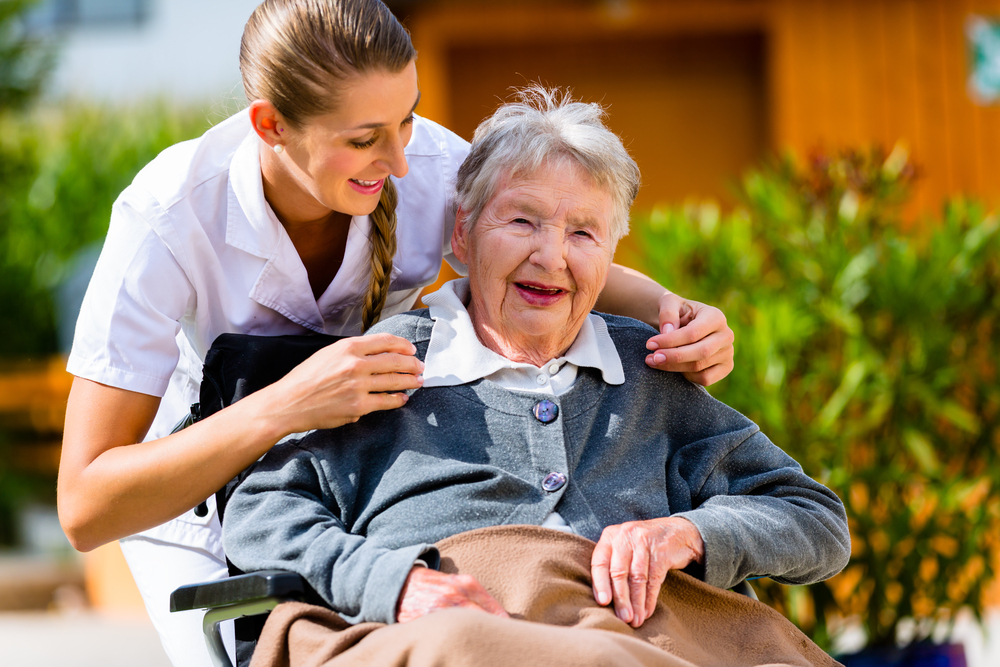Due to a lack of appropriate support in the community, unpaid carers are reluctantly taking their loved ones to A&E, according to new research published today by Carers UK [1]. The charity’s report comes as the NHS prepares for its annual challenge of increased A&E visits and hospital admissions during the winter months.
Carers identified serious difficulties accessing primary and community support services, with 1 in 5 saying they had no option but to take their loved one to A&E because it was impossible to see a district nurse or a GP out of hours, and 1 in 10 saying they didn’t know where else to go.
The report, Pressure points, found that the majority of carers who have taken their loved one to A&E in the past 12 months believe their admission could have been prevented with more (55%) or higher quality support (50%) for the person they care for, more local support for them as a carer (32%) or access to a district nurse (25%).
A reduction in the provision of local care and support services is contributing to a rise in A&E visits and hospital admissions, as families say they have nowhere else to turn. Indeed, there were over 500,000 more visits to A&E in the first quarter of 2016 than the same period last year [2].
This growing demand on the NHS is forcing many people to be discharged from hospital too early, often without the right support in place at home and without proper consultation with their family. Over half of carers (58%) said that the person they care for had been discharged from hospital too early; with 12% saying their loved one had to be readmitted at a result. Not only is this counterproductive for the health of the person being cared for but it also causes undue stress and anxiety for families and friends who are often unprepared to take on caring responsibilities or coordinate aftercare themselves.
A lack of community health and care support is not only resulting in more people being admitted – or readmitted – to hospital, but it is also leading to many people having to stay in hospital for longer than necessary as they wait for an appropriate care package to be put in place to enable them to go home. What’s more, the cost to the NHS of delays in discharging older patients alone is £820 million a year [3]; with the number of delayed discharges, and therefore costs, continuing to rise [4].
Heléna Herklots, Chief Executive of Carers UK, said:
“The majority of care provided in England is not by doctors, nurses or care workers, but by family and friends. These carers have told us that they aren’t able access the support they need, when they need it, from community health and care services, so they are reluctantly having to turn to A&E.
“What’s more, a lack of consultation, support and information at the point their loved one is discharged from hospital means that many families are taking on a caring role in a crisis and feel unprepared. This isn’t sustainable and is leading to many people being readmitted to hospital shortly after they’ve been discharged, piling more pressure on an already stretched NHS.
“With more and more families picking up caring responsibilities and older people with care needs being encouraged to stay at home for longer, a step-change is urgently needed to boost investment in community services and involve carers in decisions about the support they, and their loved ones, need to manage at home.”
Carers UK is calling for:
A Carer Friendly NHS programme, introducing a new duty on the NHS to identify carers and promote their health and wellbeing, as well as policies which ensure carers are involved in decision making around hospital admissions and discharges, and the adoption of a Carer Passport scheme
Increased funding for social care, with the Government putting in place a sustainable funding settlement for social care and ring fencing funding for carer breaks
Greater access to social care and health care in the community, including looking to new technologies to facilitate virtual health consultations and access to electronic patient records
Greater support from primary care services to better help carers look after their own health, including annual health checks for carers and free flu jabs
To download your copy of Carers UK’s Pressure points: carers and the NHS report, visit: www.carersuk.org/pressurepoints
Carers UK recognises that deciding to care or continue caring for someone who is coming out of hospital can be very difficult. The charity has published a fact sheet which outlines carers’ rights during the hospital discharge process, the steps that should be followed before the person is discharged from hospital and advice on what to do if things go wrong. The fact sheet, Coming out of hospital, is available at: www.carersuk.org/help-and-advice/practical-support/coming-out-of-hospital
[1] Pressure points: carers and the NHS (2016) Carers UK
[2] A&E Attendances & Emergency Admission Statistics, NHS and independent sector organisations in England (July 2016) NHS England
| Total A&E Attendances | |||
| 2015 | 2016 | Percentage change | |
| January | 1,732,067 | 1,906,920 | 10.10% |
| February | 1,654,846 | 1,870,776 | 13.05% |
| March | 1,942,967 | 2,087,553 | 7.44% |
| TOTALS | 5,329,880 | 5,865,249 | 10.04% |
[3] Discharging older patients from hospital (2016) National Audit Office
[4] Monthly A&E Report (June 2016) NHS England: In June 2016, there were a total of 171,300 delayed days, of which 115,400 were in acute care – an increase of 31,800 from June 2015.
For practical advice and information about caring, contact the Carers UK Adviceline on 0808 808 7777 (10am-4pm, Monday-Friday) or email advice@carersuk.org. Our listening service is available Mondays and Tuesdays, between 9am-7pm.
